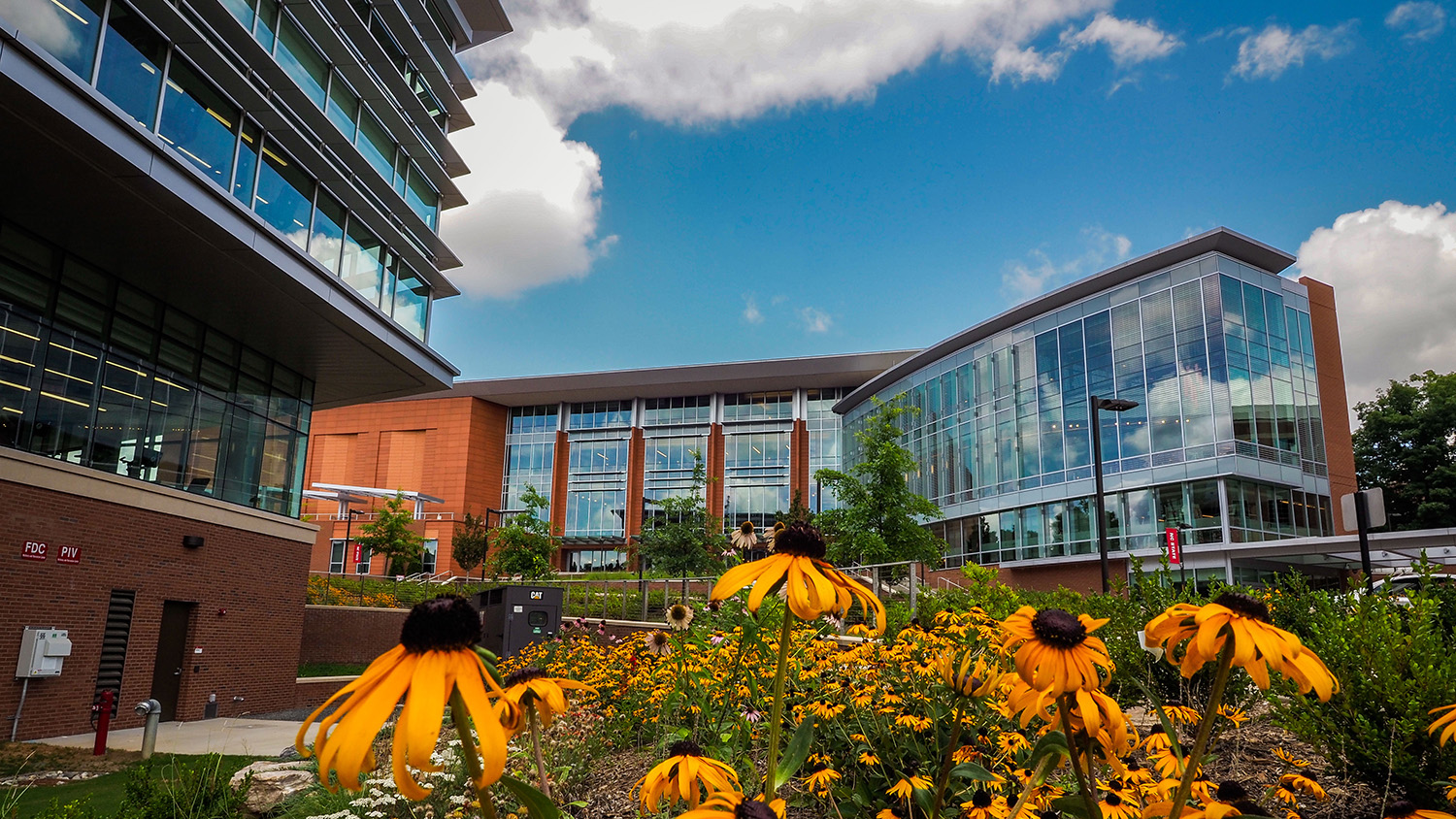DELTA Faculty Fellows Seize the Day

What does it mean to be a DELTA Faculty Fellow? In a word –– opportunity.
It means the opportunity to collaborate with DELTA staff on innovative and engaging projects. It means the opportunity to support other faculty in teaching effectively using campus technologies. But most importantly, it means the opportunity to share your knowledge, experiences and wisdom in teaching with technology with the NC State community and beyond, improving student learning in the process.
Take it from the current DELTA Faculty Fellows. Michelle Bartlett, Lina Battestilli, Elaine Bohórquez, Christine Cranford, Annette Moore and Julianne Treme have spent the recent months writing, teaching and collaborating to enhance the ever-evolving learning environment at NC State. Here’s how they have seized the opportunity to be a DELTA Faculty Fellow.
Writing
When DELTA Faculty Fellows aren’t busy teaching, you may find them writing. The Fellows have been writing informative articles for DELTA News to support faculty teaching during the pandemic.
Battestilli called on her experience working with students to write Best Practices for Managing Online Office Hours, a resource with ways to provide synchronous and asynchronous help that will benefit individual students and your entire class. Online forums, study hour leaders and virtual lobbies are just a few ways she successfully supports students at a distance.
Office hours can be even more effective with the help of teaching assistants (TAs). Thankfully, Julianne Treme gathered her advice in Tips for Working with a Teaching Assistant in an Online Course. She shares her favorite ways to help your TA engage with students and help your course run smoothly.
Treme also collaborated with Cranford on Tips to Increase Student Engagement in Zoom Breakout Rooms, which can go beyond simply organizing students into rooms for collaboration. Together, they highlight creative activities and approaches to make the most of breakout rooms.
Cranford took a deep dive into course maps, highlighting how they can lead to a well-organized course and a successful learning experience. Her article breaks down a complicated process and helps faculty make difficult decisions like how to deliver course materials as well as how to assess student’s knowledge and skills.
But even DELTA Faculty Fellows have to step back sometimes. In the middle of a busy semester, Moore shared Moments of Refreshment, which outlines easy ways to build tranquility and reflection into our most busy days. Several Fellows also joined forces to help NC State faculty plan breaks for students, who faced an unconventional schedule this spring.
Amidst all of these contributions, our Fellows also made their voices heard beyond DELTA, completing papers, writing book chapters and contributing to articles for their colleges. Together, they’ve developed an expert collection of literature that will not only be useful for years to come, but serve as a record of the challenges instructors and students overcame in an unusual academic year.
Outreach
DELTA Faculty Fellows directly support their peers via training events, which they often help to develop and to lead. It’s no surprise that they’re skilled teachers in and outside of the classroom.
Bohórquez has been working with faculty to explore new ways to leverage technology in their online courses.
“Sometimes this is through individual meetings to provide a short tutorial and answer questions. Other times, it is through a more formal process, like leading a roundtable at the annual Office of Faculty Development Teaching and Learning Symposium. I’ve also been working with the UNC System Digital Learning Initiative on workshops and seminars to promote the integration of pedagogical processes to meet the needs of an online environment,” she says.
Bartlett, Treme and Cranford also contributed to the UNC Digital Learning Initiative’s monthly webinar series. They shared their go-to digital learning strategies and technologies at the workshop “Remote Learning: What I Will Bring Back to the Classroom?”
Fellows also collaborate with DELTA’s teams of instructional designers and technologists to lead DELTA Workshops. Battestilli recently hosted a workshop on Gradescope, an AI-assisted grading tool, and Treme led sessions on PlayPosit and Google Jamboard. You also can catch Cranford anytime in her recorded workshop about Creating Online Assignments and Learning Activities.
Cranford has also worked with DELTA Lead Instructional Designer Rebecca Sanchez to create a new asynchronous training opportunity –– Quick Training Series: Online Course Design. Beginning June 1, faculty or graduate students interested in short, focused, flexible asynchronous training in best practices for online course design will have a new resource.
That’s just a snapshot of the work our Fellows do year-round to guide and support other educators. You’re also likely to find them presenting at conferences, contributing to panel discussions and serving as leading voices for academic technology in their departments, colleges and at DELTA.
Inspiration
So what inspired DELTA Faculty Fellows to get involved in these ways? They’ve achieved huge strides in their courses thanks to the effective use of learning technologies, and they want to help other faculty do the same.
“I wanted to give back to the NC State teaching community … I am an early adopter of educational technology because I believe that it brings efficiency, innovation and organization to my courses. I also think that this is helping my students develop the necessary 21st Century skills in an increasingly digital and connected world,” Battestilli says.
Cranford shares a similar sentiment.
“Applying to be a Faculty Fellow was an opportunity to give back to DELTA by helping to support other teachers. Becoming a Faculty Fellow has allowed me to support faculty who want to create quality learning experiences and allowed me to give back to the teaching community that has helped me become the teacher that I am today,” she says.
When Bohórquez first got started as an educator, she felt overwhelmed by the number of different technologies that are out there and found it hard to tease apart which ones would be most advantageous for her purposes. Now that she is more versed in teaching technologies, she wants to help faculty streamline the process of selecting appropriate options for their course needs.
The Fellows hope that their work is helpful to the faculty who, like them, are learning the best ways to teach as they go.
“By coming together via workshops, symposiums, institutes, panels and training, the NC State teaching community can share evidence-based practices and our collective wisdom of what works and what doesn’t in the classroom. This is the only way that we can create high-quality courses for our students,” Battestilli says.
“My hope is that by looking into available options, faculty will see that just because a particular platform works for one course doesn’t mean that it will meet the needs of all courses and will be amenable to exploring new options to make our online courses effective, efficient, and enjoyable for our students,” Bohórquez adds.
How do you want to get involved and improve outcomes for your students as a faculty member? The DELTA Faculty Fellows program has opportunities for you to explore your interests, engage with your peers and elevate the learning experience for your students.
Explore the DELTA Grants RFP for more information about the DELTA Faculty Fellows program, and submit your proposal by May 21 at 5 p.m.


